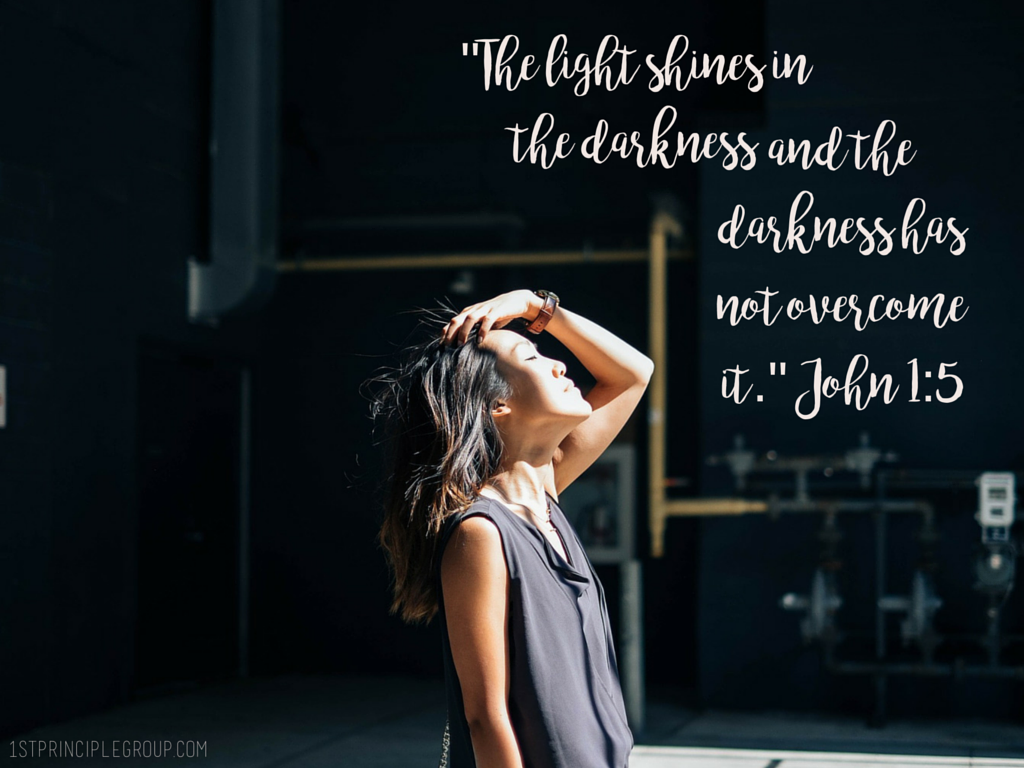Exposing the Darkness

“Everyone is a moon, and has a dark side which he never shows to anybody.”
-Mark Twain
Do you remember that first moment someone you thought so highly of did something awful? The shock of your idol/sibling/parent/best friend doing something you know in your heart to be wrong? For me, one of the earliest instances of this happening was buying an album of a band I loved in 5th grade. I put the CD on in my room and started listening, and to my horror...a curse word! I debated long and hard if I should destroy all the other CD’s by this band, renounce secular music forever, and commit to only listening to music without words...it was a surprise my young heart had a difficult time understanding.
There have been a lot of surprises since starting counseling school, but not in the way I would have expected.
I’m more surprised at how surprised people are by what I see. The shocking thing is not so much that someone has struggled with some unspeakable sin for years and years and it’s destroying their lives. I’m more surprised that we, as the Church, are shocked by this.
The Reality of Sin in Our Lives
Have we insulated ourselves so well that even sin seems like some distant being outside of ourselves? Brokenness surely knocks on our church doors every once in a while - but it’s someone else’s wayward child. It’s someone else’s addiction. It’s someone else’s infidelity. It’s something outside threatening us within and all we can do is band together to pray and fight it.
Often times, we’re missing the brokenness inside. We’re holding the giant doors of the church from the barrage of the enemy on the outside, pretending the person next to us isn’t filled with that same enemy.
I have heard things that are really shocking. I’ve heard stories of abuse that seem so beyond the realm of possibility it’s hard to imagine someone living through it. But I am moving to a reality of no longer wondering in shock, 'How did someone get to that point?'
Pathology aside, there is a simple answer to this question that becomes more and more obvious to me the deeper I get into this field. We get to these points of unthinkable destruction because we keep living as if none of us are entertaining the idea of sin. We want to believe that our neighbor has everything together, and the threat of horrendous sin is beyond the borders of our church. We want to believe that the awful sin we harbor in our own homes is ‘ours to manage’ and if we just try hard enough we can probably figure a way out of it.
Pursuing Each Other in the Darkness
But that’s not how we were made to live. I hear people speak about the guilt they live with or the weight of their choices and it feels like we’re still living under the old law. “I couldn’t possibly forgive myself…my family couldn’t possibly forgive me...I deserve all of this for how terrible I am…” We were not made to ‘manage’ our own sin by trying harder to hide it and deal with it. We were made to know each other and be known.
Somewhere along the way, we have stopped pursuing each other in this. We have forgotten the power of the Gospel to enter into this darkness with one another without hesitation or fear. Because of the Gospel, there is no darkness that is too dark. There is no isolation that is too lonely. There is no fear that is too overwhelming. There is no pain that is too deep.
And as the Church, we need to be willing to walk into those places in order for there to be healing and growth. What would it look like for us to take our call more seriously to care for those who are broken and hurting (which is all of us)? We can no longer pretend that the darkness is out there, waiting to come in - we have welcomed it in and are entertaining it for dinner. The more we ignore it, the further we head toward death and destruction.
I think this takes a shift. A shift in how we interact with each other, a shift in our expectations for what ‘community’ might mean, a shift in what it means to be a safe place as a church. It starts with listening, and until we are willing to hear where someone else currently is, we are always going to be talking about where they should be instead. It will take moving beyond simply having conversations about vulnerability, and instead being authentic, daily, with one another. It will take not just having conversations about the light, but being the light to each other, illuminating the darkness we all work so hard to hide.
What would it look like for you to enter into this darkness with someone else?
